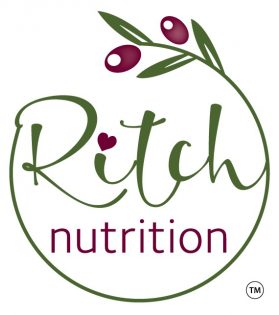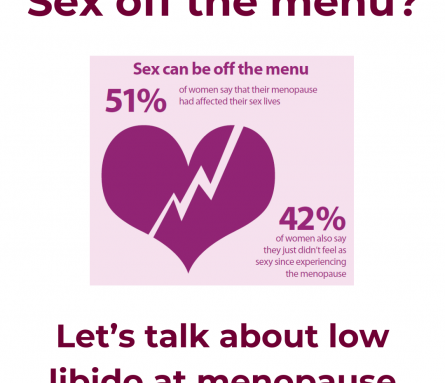Low libido is one of the lesser-talked-about symptoms of menopause, but it's incredibly common. In fact, more than 51% of women experience a loss of sexual desire during the menopausal transition, according to a survey by the British Menopause Society.
Yet, many women feel too embarrassed to mention it, even though it can impact their confidence, relationships, and sense of identity.
Let’s be clear: libido isn’t just about sex. It’s an important indicator of vitality, creativity, and connection—and it deserves attention and support.
What Happens to Libido During Menopause?
As levels of oestrogen, progesterone, and testosterone decline, you may notice changes in:
💘 Sexual desire and fantasies
💘 Arousal and sensitivity
💘 Vaginal lubrication and comfort
💘 Overall satisfaction and intimacy
These hormones influence blood flow to the genitals, mood regulation, neurotransmitter balance, and tissue health. For example:
💘 Oestrogen maintains the integrity of vaginal tissue and blood vessel dilation.
💘 Progesterone supports sleep and reduces anxiety via its action on GABA receptors.
💘 Testosterone, although lower in women than men, is vital for desire, sexual receptivity, and energy.
However, libido is about more than hormones. It’s shaped by your nervous system, metabolic health, inflammation levels, mental wellbeing, and even your gut and thyroid function.
As a nutritional therapist, I take a root-cause approach to low libido. That means looking at you as a whole person—including:
🔄 Blood Sugar Balance
Fluctuating blood sugar can trigger energy crashes, mood swings, and cortisol spikes—all of which reduce sexual interest. Chronically high insulin may also suppress testosterone and drive inflammation.
😰 Stress & Cortisol
Ongoing stress leads to chronic cortisol elevation, which can lower your sex hormone production. Stress also dulls dopamine and oxytocin, the neurochemicals essential for pleasure and connection.
😴 Sleep Disruption
Low progesterone and oestrogen can lead to poor-quality sleep, which reduces testosterone and libido. Sleep is also essential for neurotransmitter regeneration and hormonal repair.
🦠 Gut & Liver Health
Poor gut health can affect the gut bacteria that help metabolise oestrogens, and ensures hormones are removed from your body safely. A sluggish liver may also play a role here, creating imbalances that impact mood and sexual function.
🧬 Thyroid Function
Low thyroid hormone levels are linked with reduced libido, low energy, and poor circulation. Nutrients like iodine, selenium, and iron are essential here.
So, What Can Help?
Here are some simple nutrition and lifestyle tips to try and help you reconnect with your sexual vitality:
💘 Move Your Body
Exercise boosts blood flow (yes, there too), lifts mood via endorphins, and supports insulin sensitivity. Aim for a mix of resistance training, walking, and something joyful—like dancing or swimming.
💘 Eat Phytoestrogens
These plant compounds have a weak oestrogenic effect and may help support hormone balance naturally. Include: Flaxseeds, Edamame beans,
Broccoli sprouts, Parsley, sage, thyme, turmeric, Nuts and seeds. These work by binding to oestrogen receptors, gently supporting oestrogen activity when levels are low, without overstimulating them.
💘 Targeted Supplements and Herbs
Some evidence-based options that can support libido and vaginal health include:
💚 Maca – may enhance libido and energy
💚 Ashwagandha – supports stress resilience and sexual function
💚 Red clover – contains isoflavones (phytooestrogens) that support oestrogen balance
💚 Red ginseng – shown to enhance arousal and satisfaction in clinical studies
💚 Sea buckthorn oil – can help relieve vaginal dryness, itching, and burning when taken orally
💚 Circulatory herbs like ginger, turmeric, and thyme – support blood flow and anti-inflammatory balance
⚠️ Always consult a qualified practitioner before starting supplements, especially if you're on medication or using HRT.
If your sex drive has disappeared since you've hit menopause, you’re not alone and you don’t have to put up with it.
If you’d like to explore how personalised nutrition can help you feel more like you again, I’d love to help.

